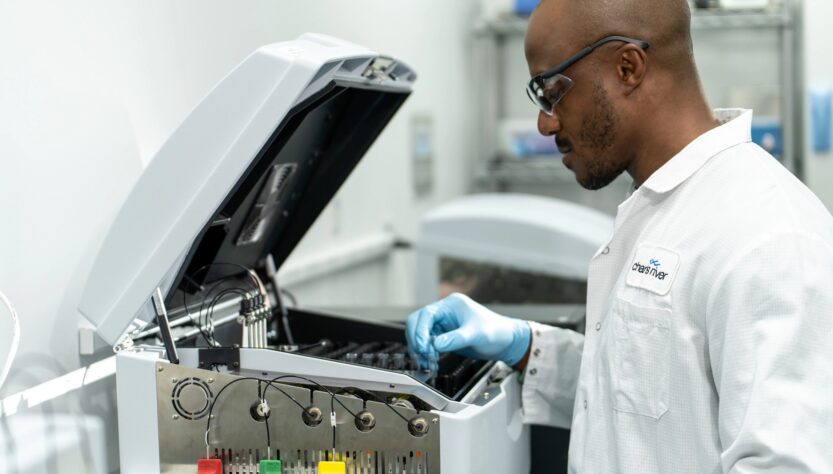In industries where hygiene and safety are paramount, preventing microbial contamination is a top priority. From food and beverage production to pharmaceutical manufacturing, maintaining a clean and sterile environment is crucial for ensuring product quality and protecting public health. Advanced filtration systems have emerged as a powerful solution for reducing microbial contamination across various applications. These systems are designed to remove harmful microorganisms from fluids, thereby minimizing the risk of contamination and enhancing the overall safety of products. The effectiveness of filtration technology in controlling microbial contamination is critical for any industry that demands high standards of cleanliness and sterility. This article explores the role of a well pump installerin safeguarding products and processes, highlighting the benefits they offer in maintaining a contamination-free environment.
The Importance of Filtration in Contamination Control
Filtration plays a vital role in preventing the spread of harmful microorganisms in industrial processes. In environments where the presence of bacteria, viruses, and other microbes can lead to serious contamination issues, the implementation of effective filtration is essential. These systems work by physically removing microorganisms from fluids, ensuring that the end product is free from potentially dangerous contaminants. This is especially important in industries such as food processing, where even the slightest contamination can result in product recalls, health hazards, and significant financial losses. By incorporating advanced filtration technologies into their operations, companies can reduce the likelihood of microbial contamination, thereby protecting both their products and their reputation. Moreover, the effectiveness of these systems in maintaining a sterile environment allows production to meet the strictest regulatory standards, ensuring consumer safety and compliance with industry regulations.
Technological Advancements in Filtration Systems
Recent advancements in filtration technology have significantly enhanced the ability of these systems to remove microorganisms from fluids. Innovations in filter materials, design, and engineering have led to the development of highly efficient filtration systems capable of capturing even the smallest microbial particles. For example, modern filters are often made from materials with antimicrobial properties, which not only trap contaminants but also inhibit their growth, providing an additional layer of protection. Additionally, the design of filtration systems has evolved to include multi-stage processes, where fluids pass through a series of filters with varying levels of pore size. This multi-layered approach ensures that a wide range of contaminants is captured, from larger particles to microscopic microbes, resulting in a much cleaner and safer final product. Furthermore, the integration of smart technology into filtration systems allows for real-time monitoring and control, enabling operators to detect and address potential contamination issues before they become critical. These technological advancements have made filtration systems more reliable and effective, offering industries robust clear water solutions.
Benefits of Using Advanced Filtration Systems
The use of advanced filtration systems offers numerous benefits beyond simply reducing microbial contamination. One of the key advantages is the protection of equipment and machinery from the buildup of contaminants, which can lead to blockages, corrosion, and ultimately, costly repairs or replacements. By removing harmful particles before they reach sensitive components, filtration systems help extend the lifespan of industrial equipment, reducing downtime and maintenance costs. Additionally, these systems contribute to more efficient operations by ensuring that fluids are clean and free from obstructions, which can improve the overall performance of production processes. Another significant benefit is the enhancement of product quality. In industries where purity is critical, such as pharmaceuticals or food and beverage production, the use of advanced filtration ensures that the final product meets the highest standards of safety and cleanliness. This not only reduces the risk of product recalls and legal liabilities but also boosts consumer confidence and brand reputation. Furthermore, advanced filtration systems are designed with sustainability in mind, often featuring components that are reusable, recyclable, or require less energy to operate, contributing to a more environmentally friendly production process.
The Role of Filtration in Regulatory Compliance
In many industries, adherence to strict regulatory standards is mandatory, and advanced filtration systems play a crucial role in helping companies achieve compliance. Regulatory bodies impose rigorous requirements on the levels of microbial contamination that are permissible in various products, especially in sectors like pharmaceuticals, food processing, and biotechnology. Failure to meet these standards can result in severe penalties, including fines, product recalls, and even shutdowns of manufacturing facilities. With a well pump installer, companies can significantly reduce the risk of non-compliance, as these systems are designed to meet or exceed the stringent requirements set by regulatory agencies. Moreover, many advanced filtration systems come with validation documentation and certification, providing proof of their effectiveness in removing contaminants and maintaining product safety. This not only simplifies the process of regulatory compliance but also provides peace of mind for manufacturers, knowing that their operations are aligned with industry best practices. Additionally, the use of filtration systems can help companies stay ahead of evolving regulations, as they offer the flexibility to adapt to new standards and guidelines, ensuring ongoing compliance in a rapidly changing regulatory landscape.
Conclusion
Advanced filtration systems are essential for reducing microbial contamination in industries where hygiene and safety are critical. These systems provide robust clear water solutionsfor maintaining a clean and sterile environment, ensuring the quality and safety of products. Technological advancements in filtration have made these systems more efficient and reliable, offering numerous benefits, including equipment protection, improved product quality, and regulatory compliance. As industries continue to prioritize safety and quality, the adoption of advanced filtration systems will remain a key strategy for mitigating the risks of microbial contamination and ensuring the integrity of products and processes.

